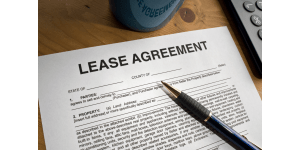We often imagine physical or emotional abuse when we think of domestic violence. But there is another type of abuse that is less visible and more difficult to detect: financial abuse.
This blog post will explore financial abuse, how to recognise it, and what legal actions you can take as a victim.
Table of Contents
ToggleWhat Does Financial Abuse Mean?
Financial abuse is one of many forms of abuse, and it often occurs alongside other types, such as emotional, physical, or sexual abuse.
Financial abuse involves using money and financial tools to create an imbalance of power within a relationship. It can take several forms and happen to anyone, regardless of social standing, age, or gender.
What are the Signs of a Financially Abusive Person?
Recognising the signs of a financially abusive person can help stop the cycle of abuse and protect the potential victim.
Here are some signs that may indicate financial abuse:
- Control over finances: The person insists on controlling all financial decisions, doesn’t allow access to bank accounts, insists on handling money matters without involving the partner, or doesn’t provide enough money for necessary expenses like food, clothing, or medical expenses.
- Secrecy about financial matters: The person is secretive about financial matters, doesn’t provide clear answers when asked about money, or becomes aggressive or defensive when questioned about money.
- Preventing or restricting employment: The person may discourage or prevent the partner from working or even sabotage their job opportunities to make them financially dependent.
- Creating debt: The person may take out credit cards or loans in the partner’s name without consent or coerce them into signing financial documents without explaining their implications.
- Stealing or misusing funds: The person may steal or misuse the partner’s money, assets, or inheritance. They may also take the partner’s paycheck without their consent.
- Withholding resources: The person may withhold primary resources or necessities, including money, food, clothing, or necessary medication, as a means of control.
- Financial threats: The person may use money as a threat or weapon in arguments, such as by threatening to cut off access to all money or leaving the partner destitute.
- Unrealistic expectations: The person may expect the partner to sustain the household on their salary alone or demand that all of the partner’s income go into a joint account they control.
- Exploiting the partner’s resources: The person may excessively use the partner’s assets for personal benefit without mutual consent.
It’s important to note that not all signs must be present for it to be considered financial abuse.
The opposite is also true, just because one of these things is happening, it does not equate automatically to financial abuse.
Moreover, financial abuse often co-occurs with other forms, like emotional, physical, or sexual abuse.
What Does Financial Abuse Look Like?
Financial abuse in Australia can manifest in many ways and may look different from one situation to another, depending on the specifics of the relationship and the individuals involved.
However, here are several examples of what financial abuse might look like:
- Total control of finances: The abuser controls all the money, including both partners’ earnings. They might not allow the victim to have their own bank accounts or credit cards.
- Limited allowance: The abuser might give the victim a small budget while they have complete control over the rest of the finances. The victim may need to account for every penny spent and is often not given enough for necessities.
- Forbidding work: The abuser might forbid the victim from working, making the victim entirely financially dependent on them.
- Sabotaging employment: The abuser might intentionally sabotage the victim’s employment opportunities by causing scenes at their workplace, interfering with their job duties, or not allowing them to attend work.
- Stealing money or identity: The abuser may steal money from the victim, use their personal information to open credit cards or take out loans without their knowledge, leading to identity theft.
- Coerced debt: The abuser may coerce or trick the victim into signing financial agreements or contracts, such as loans or credit card applications, leaving the victim in debt.
- Withholding financial information: The abuser might keep the victim in the dark about household finances, bills, and investments, limiting their understanding and control over their financial situation.
- Exploitation of assets: The abuser might take over or misuse the victim’s support for their benefit without the victim’s knowledge or consent. This could include selling property, cashing in investments, or draining bank accounts.
Remember, financial abuse is often an invisible weapon that can seem subtle or harmless at first, but over time it gradually erodes the victim’s confidence and independence.
It’s a powerful method of keeping a victim trapped in an abusive relationship.
Domestic Violence and Financial Abuse in Australia
Financial abuse is a common and devastating form of domestic violence in Australia. It involves behaviours that control a person’s ability to acquire, use, and maintain financial resources.
These behaviours aim to limit a person’s independence and make it harder for them to escape an abusive relationship.
The National Domestic and Family Violence Bench Book, a comprehensive resource for all Australian courts dealing with domestic and family violence-related legal issues, defines economic abuse as a subset of emotional or psychological abuse.
Economic abuse can involve controlling a person’s access to, acquisition, use, maintenance, and capacity to manage financial resources.
Common examples of financial abuse within the context of domestic violence might include:
- Controlling how all of the household income is spent.
- Not allowing the victim to have their own money.
- Forbidding the victim from working or studying.
- Influencing the victim’s choice of occupation or sabotaging employment opportunities
- Using the victim’s personal information to create debt without their knowledge or consent
- Withholding financial information and decision-making powers.
In many Australian jurisdictions, economic abuse is recognised as domestic violence. For instance, in Victoria, the Family Violence Protection Act 2008 includes financial abuse in its definition of family violence.
This could consist of coercing a family member to relinquish control over assets or income, preventing a family member from participating in decisions over household expenditure, or disposing of property against a family member’s wishes or without consent.
If a person is experiencing financial abuse as part of a domestic violence situation, they can potentially seek a protection order that prohibits the abuser from continuing the behaviour.
Breaches of such orders can result in criminal penalties.
Also read: Can I Sue For Domestic Violence?
Is Financial Abuse a Crime in Australia?
Financial abuse is recognized as a form of family violence and can be considered a crime under various state and territory laws. Financial abuse involves controlling a person’s ability to acquire, use, and maintain financial resources, thereby threatening their economic security and potential for self-sufficiency.
This abuse can manifest in many ways, such as controlling someone’s access to money, stealing or withholding money, and accumulating debts under someone else’s name without their consent.
Each state and territory in Australia may have specific provisions within their family violence or criminal legislation that address financial abuse. For instance, under the Family Law Act 1975, financial abuse is acknowledged as family violence, and actions can be taken to protect victims, including through protection orders.
Moreover, criminal laws in some jurisdictions might directly or indirectly cover aspects of financial abuse, like fraud or theft, which can lead to prosecution.
Victims of financial abuse can seek various forms of legal redress, including restraining orders that prevent further abuse, and may also pursue criminal charges in cases where theft, fraud, or other criminal actions are involved.
What are the Effects of Financial Abuse?
Financial abuse can have serious and long-lasting consequences for the victim. These consequences can range from immediate financial instability to long-term economic hardship, significantly impacting the victim’s mental and physical health.
Here are some potential effects of financial abuse:
- Economic instability: One of the immediate effects of financial abuse is economic instability. This can mean being unable to pay for necessities like food, housing, healthcare, or education. It can also lead to debt or bankruptcy.
- Inability to leave an abusive situation: Financial abuse often traps the victim in an abusive relationship, as they may not have the financial resources to go and support themselves independently.
- Impact on credit history: The abusive party may rack up debt in the victim’s name, leading to poor credit history. This can make it more difficult for the victim to rent an apartment, get a loan, or find employment in the future.
- Loss of employment: Abusers often sabotage the victim’s ability to work, causing job loss. This further exacerbates financial instability and can make it harder for the victim to find future employment.
- Long-term financial effects: Over time, the economic impact of this type of abuse can result in long-term poverty, a lack of retirement savings, or ongoing debt.
- Mental health impacts: The stress of financial abuse can also lead to mental health issues such as depression, anxiety, and post-traumatic stress disorder (PTSD).
- Physical health impacts: The stress from financial abuse can also manifest in physical health problems, including chronic stress-related conditions like heart disease, gastrointestinal issues, and other physical illnesses.
- Limited access to legal help: Without financial resources, victims of financial abuse may struggle to access legal assistance to help them navigate their situation.
Also read: Who To Call For Domestic Violence: A Comprehensive Guide
Can I Apply for an AVO for Financial Abuse?
Yes, in Australia, you can apply for an Apprehended Violence Order (AVO) if you’re experiencing financial abuse. Financial abuse is recognised as abuse in many Australian jurisdictions and can be a reason to seek an AVO.
This type of legal measure is designed to protect a person who fears for their safety by preventing further abuse, which includes economic or financial abuse.
The specifics of this process may vary between states and territories, so seeking legal advice is recommended to understand your rights and the legal process involved.
Are You a Victim of Financial Abuse in Australia?
Don’t face it alone. Our lawyers are here to help navigate the complex process of standing up against financial abuse.
With expert knowledge and compassion, we are committed to helping you regain your financial independence. Contact us today to learn about your rights and explore your options.
It’s time to reclaim control of your financial future with Justice Family Lawyers.
Principal of Justice Family Lawyers, Hayder specialises in complex parenting and property family law matters. He is based in Sydney and holds a Bachelor of Law and Bachelor of Communications from UTS.







4 thoughts on “Financial Abuse: A Hidden Form of Domestic Violence”
My 3 sisters over 5 years took everything from me. Used my mother to then have me sign a contract about the property which was done under duress. I just want to go through all that occurred and see and the very least have the truth come out to help me move on.
Hi, please get in touch with our firm directly so that we can may get a better understanding of your matter and provide legal advice tailored to your situation.
Domestic violence, Financial Abuse
My son has separated from his long term defacto partner. We have discovered she has applied to extend his loan using his phone banking (without his knowledge) 3 times – loan applications declined.
This has impacted his credit rating.
What can we do? Is it fraud? There are no signatures identifying who applied for the loan.
Hi Irene, please contact our office directly to receive advice tailored to your situation.